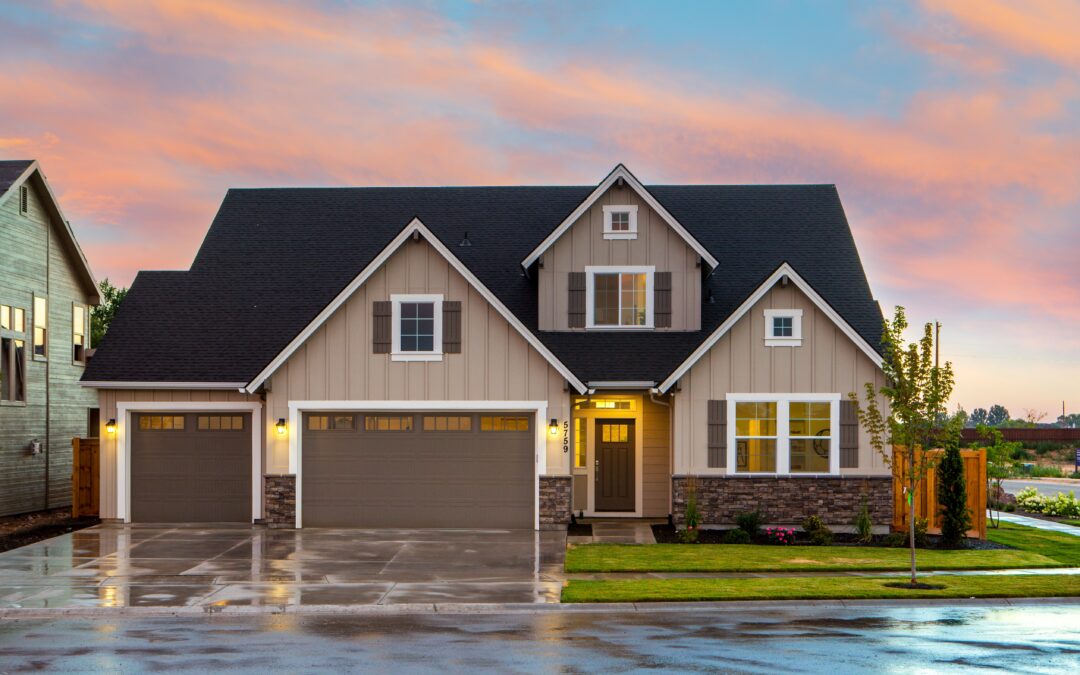The roof is one of the most essential parts of any home, providing protection from the elements and maintaining the structural integrity of the building. Choosing the right roofing material is a crucial decision that homeowners must make when renovating or building a home.
Among the most popular roofing materials are asphalt and metal, both of which have their unique advantages and disadvantages. While some homeowners prefer the traditional look and cost-effectiveness of asphalt, others opt for the durability and modern appeal of metal roofing.
In this blog post, we will explore the characteristics, pros and cons, cost considerations, and lifespan of both asphalt and metal roofing. We will also provide recommendations based on several factors, including climate, aesthetics, environmental impact, and maintenance requirements, to help homeowners determine which material is best for their specific circumstances.
Asphalt Roofing
Asphalt roofing is the most commonly used roofing material in the United States and is made up of a fiberglass mat that is coated with asphalt and granules. It is a cost-effective option for homeowners on a budget and comes in a variety of colors and styles. Asphalt shingles are resistant to fire and wind damage and are easy to install.
However, they have a shorter lifespan of 15 to 30 years compared to other roofing materials like metal. Asphalt shingles are vulnerable to damage by extreme weather conditions such as hail and heavy winds, which can result in costly repairs. Moreover, they are not environmentally friendly and contribute to landfills since they are not biodegradable.
The cost of asphalt shingles varies depending on the quality, brand, and location, but they are generally more affordable than other roofing materials.
Metal Roofing
Metal roofing is becoming an increasingly popular option for homeowners due to its durability, energy efficiency, and modern appeal. Metal roofs are typically made from steel, aluminum, or copper and can be installed in a variety of styles, such as standing seam, corrugated, or metal shingles. Here are some of the characteristics, pros, and cons of metal roofing:
Metal roofing has several characteristics that make it an attractive option for homeowners. It is durable, long-lasting, and can withstand extreme weather conditions such as high winds, hail, and heavy snow. Metal roofs are also energy-efficient, reflecting solar radiation and reducing heat absorption, which can lower cooling costs. They are also low-maintenance, requiring little upkeep throughout their lifespan.
The pros of metal roofing are significant. It has a longer lifespan of 40 to 70 years compared to asphalt shingles, which makes it a more durable and cost-effective option in the long run. Metal roofs are also fire-resistant, making them a safer option for homeowners. Moreover, metal roofs come in a variety of styles, colors, and finishes, giving homeowners the flexibility to choose a look that suits their personal preferences.
However, metal roofing also has some cons that homeowners should consider. The initial cost of metal roofing is typically higher than asphalt shingles, making it a more expensive option upfront. Furthermore, metal roofs can be noisy during heavy rain or hailstorms. Lastly, metal roofs require professional installation and cannot be installed over an existing roof.
The cost considerations and lifespan of metal roofing vary depending on the type of metal used, style, and installation. While metal roofing may be more expensive upfront, it has a longer lifespan than asphalt shingles, which can save homeowners money in the long run.
Factors to Consider
When choosing between asphalt and metal roofing, several factors should be considered. These factors can influence the performance, cost, and aesthetic appeal of your roofing system. Here are some factors to consider when deciding between asphalt and metal roofing:
Climate and Weather Conditions:
Climate and weather conditions can significantly impact the performance and lifespan of your roofing system. For example, metal roofing may be a better option in areas with high wind, hail, or snow, while asphalt shingles may be better suited to areas with milder weather conditions.
Aesthetics and Curb Appeal:
The aesthetic appeal of your roofing system can enhance the overall look and value of your home. Both asphalt and metal roofing come in a variety of colors, styles, and textures, so consider which option would best complement the style and architecture of your home.
Environmental Impact:
The environmental impact of your roofing system is an important consideration for homeowners who prioritize sustainability. Metal roofing is more environmentally friendly than asphalt shingles as it is recyclable, while asphalt shingles contribute to landfills and are not biodegradable.
Maintenance Requirements:
The maintenance requirements of your roofing system can impact its lifespan and overall performance. Metal roofing is generally low-maintenance, requiring little upkeep throughout its lifespan, while asphalt shingles may require periodic inspections and repairs.
Considering these factors can help you determine which material is best suited to your specific circumstances. While both asphalt and metal roofing have their unique advantages and disadvantages, making an informed decision based on your priorities and budget can ensure a successful and long-lasting roofing renovation.
Remarkable Durability
Asphalt shingles are known for their remarkable durability, making them one of the most popular choices for roofing materials. They can withstand strong winds, heavy rain, and even hailstorms, making them an excellent choice for areas with unpredictable weather conditions.
In addition to their weather resistance, asphalt shingles are also resistant to algae and mold growth, which can be a common problem in humid areas. Their protective coating shields them from harmful UV rays, preventing them from fading or deteriorating quickly. These factors make asphalt shingles a reliable and long-lasting roofing option for homeowners.
Straightforward Repairs
Asphalt shingles are known for their remarkable durability, but they are also easy to repair. If a shingle becomes damaged or needs to be replaced, it can be done quickly and without much hassle.
Unlike some roofing materials, which require extensive repair processes, repairing an asphalt shingle is often as simple as removing and replacing the damaged one. This contributes to the overall affordability of asphalt shingles, as simple repairs are often quick and easy.
Weather Resistance
Asphalt shingles are known for their remarkable weather resistance. They can withstand heavy rain, strong winds, and even hailstorms. They offer strong resistance against algae and mold growth, a common problem in humid areas.
Additionally, they have a protective coating that shields them from harmful UV rays, preventing them from fading or deteriorating quickly. These factors make these shingles an excellent choice for areas that experience various extremes, from unrelenting sunshine to battering wind, snow, and rainstorms.
Warranty Coverage
Most asphalt shingles come with warranty coverage designed to protect your investment. The inclusions and exclusions in an asphalt shingle warranty vary based on the shingle and provider you choose.
Most options come with a basic limited lifetime warranty, which is standard in the industry. Generally, these warranties cover the basics, such as factory defects. They typically exclude aspects unrelated to defects, although an extended warranty may cover these costs. It all depends on the option you choose.
Maintenance Tips for Homeowners
Like any roofing material, asphalt shingles require routine maintenance to keep them in tip-top shape. Here are a few top tips to help you promote the longevity of your asphalt roof:
- Routine inspections: Regularly inspect your roof for any signs of damage or deterioration, especially after heavy winds or harsh storms. If you see any damage, call a professional roofer to repair the damage as soon as possible.
- Regular cleaning: Clean your gutters to prevent water from backing up and causing damage to your roof. Remove any debris from your roof, such as leaves and twigs, to prevent algae and mold growth.
- Preventative maintenance: Trim any overhanging branches that may damage your roof during storms or high winds. Heavy branches weighed down by excessive rainfall or snow can do a number on your roof, so it’s essential to eliminate them before they fall and cause a problem.
- Visit your attic: Check your attic insulation to ensure it is properly installed and not causing moisture buildup. Ensure your attic ventilation is adequate to prevent heat buildup and moisture accumulation.
- Routine inspections: Professional inspections are crucial to roof maintenance. Ideally, you should have your roof inspected at least once yearly to check for damage and potential issues. These inspections help identify problems and nip them in the bud, potentially avoiding costly repairs down the road.
Conclusion
Choosing the right roofing material is a crucial decision for homeowners looking to renovate or replace their roof. Both asphalt and metal roofing have their unique advantages and disadvantages that homeowners should consider when making their decision.
Asphalt roofing is a cost-effective option that is available in a variety of colors and styles, and it is resistant to fire and wind damage. However, it has a shorter lifespan than metal roofing and is vulnerable to damage by extreme weather conditions. On the other hand, metal roofing is durable, energy-efficient, and has a longer lifespan than asphalt roofing, but it is more expensive upfront.
When making the decision between asphalt and metal roofing, factors such as climate and weather conditions, aesthetics, environmental impact, and maintenance requirements should be considered. By weighing these factors and prioritizing their specific needs and budget, homeowners can make an informed decision about which roofing material is best suited to their needs.
Ultimately, working with a qualified and experienced contractor can help ensure a successful and long-lasting roofing renovation.



 (908) 588-9575
(908) 588-9575
